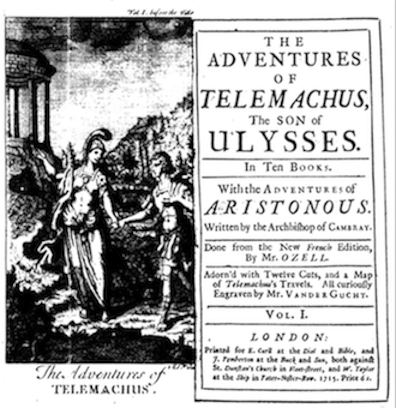Stephen imagines the milkwoman as being a humble avatar, "the
lowly form of an immortal." His phrase "poor old woman"
recalls the Shan Van Vocht of Irish mythology. But the
thought that she is "maybe a messenger" invokes Homeric
divinity, likening the old woman to Athena, who twice appears
to Telemachus in the form of an old man to tell him what to
do.
In Book 1 of the Odyssey, the goddess Pallas Athena
resolves (in Robert Fitzgerald’s transation) to “visit Ithaka
/ to put more courage in the son,” and to urge him to take
certain measures to oppose the suitors and find news of his
father. She visits Telemachus disguised as an old “family
friend, the Taphian captain, Mentes.” Telemachus sees through
the disguise, however; as Mentes leaves the palace, he
“marvelled to himself / divining that a god had been his
guest.” In Book 2 Athena returns in a new disguise as Mentor,
“comrade in arms of the prince Odysseus, an old man now,” whom
Odysseus left in charge of the palace. Telemachus has been
praying to the “god of yesterday, / guest in our house” to
help him, and Mentor suddenly appears.
Joyce imitates this numinous appearance, and has Stephen
think that the milkwoman may be coming “To serve or to
upbraid” him. But Stephen departs from the Homeric original in
“scorn[ing] to beg her favour.” This skewing of the Homeric
analogue will continue in Nestor: Mr. Deasy corresponds to the old
warrior Nestor whom Telemachus consults for news of his
father, but Stephen does not feel that he has anything to
learn from the crusty old man.
